Are you facing challenges in keeping up with rent payments? You're not alone, and there are options available to help ease this burden. In this article, we'll explore how you can effectively request a rent deferment and what you should include in your letter to make your case compelling. So, if you're ready to take the first step towards financial relief, keep reading for some helpful tips and a sample letter!

Tenant Information
The process of requesting rent deferment requires specific details to substantiate the tenant's circumstances. Tenant information should include the full name of the tenant, the rental property address (including city, state, and zip code), the landlord's name, and contact information. Additionally, the lease agreement date along with relevant tenant identification numbers (such as a driver's license or social security number) should be documented to validate the tenant's identity. Relevant financial details explaining the circumstances causing the deferment, such as job loss or unexpected medical expenses, are crucial to support the request. It is also beneficial to include expected duration for the deferment, as well as the proposed repayment plan to assure the landlord of the tenant's commitment to fulfilling obligations.
Landlord/Property Manager Details
Submitting a request for rent deferment requires clear communication regarding your circumstances. It's essential to provide specific details about your situation to the landlord or property manager. Mention the property address, the monthly rent amount, and your reasons for the deferment, such as loss of income due to the COVID-19 pandemic. Clarity and honesty can help facilitate a positive response from the management. Include a proposed plan for when you can resume normal payments or how you plan to catch up on missed rent.
Subject Line - Clear Request
Individuals facing financial challenges due to unforeseen circumstances such as job loss, medical emergencies, or global events like the COVID-19 pandemic often seek rent deferment. Rent deferment refers to an agreement between tenants and landlords allowing tenants to delay rental payments temporarily while maintaining their lease contract's integrity. Important details to include are the specific rent amount, the reasons for the deferment request, the proposed duration of the deferment, and a written assurance of the tenant's intention to fulfill their obligations at a later date. This request should also highlight any ongoing communications with the landlord to foster a cooperative resolution.
Explanation of Financial Hardship
Facing financial hardship due to unexpected events can significantly impact the ability to meet rental obligations. Job loss or reduction in hours, for instance, can lead to diminished income, making it challenging to cover monthly expenses in cities like San Francisco, where median rents exceed $3,500. Medical emergencies can also strain finances; hospitalization costs for an average stay can reach thousands of dollars. Additionally, the economic downturn resulting from global events, such as the COVID-19 pandemic, exacerbates uncertainty, leading to increased difficulty in maintaining timely rent payments. Possible solutions include negotiating a rent deferment plan, allowing tenants to manage cash flow more effectively while maintaining their housing stability.
Proposed Payment Plan
Tenants facing financial difficulties may request a rent deferment plan due to unforeseen circumstances like job loss, medical emergencies, or increases in living expenses. This involves submitting a formal request to the landlord or property management. Key elements include outlining the current financial hardship, detailing the proposed payment plan, and specifying a timeline for deferred payments. For example, a tenant may propose a 50% reduction in rent for three months followed by an additional payment of $200 per month until the outstanding balance is settled. Clear communication and documentation (such as pay stubs or medical bills) can facilitate these negotiations, fostering understanding and cooperation between tenants and property owners.
Letter Template For Rent Deferment Request Samples
Letter template of rent deferment request for self-employed individuals.
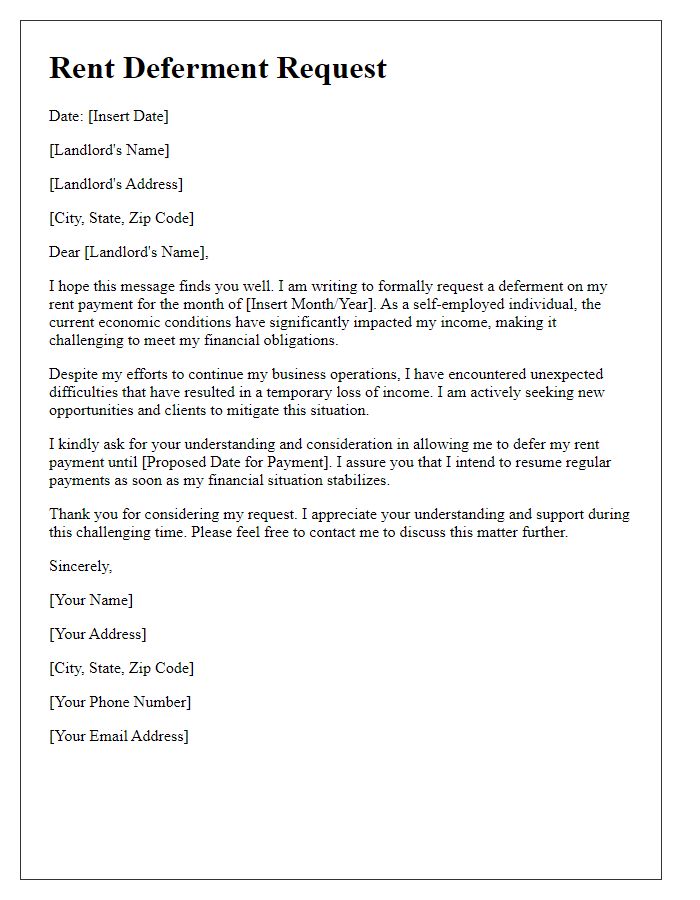
Letter template of rent deferment request for students facing tuition fees.
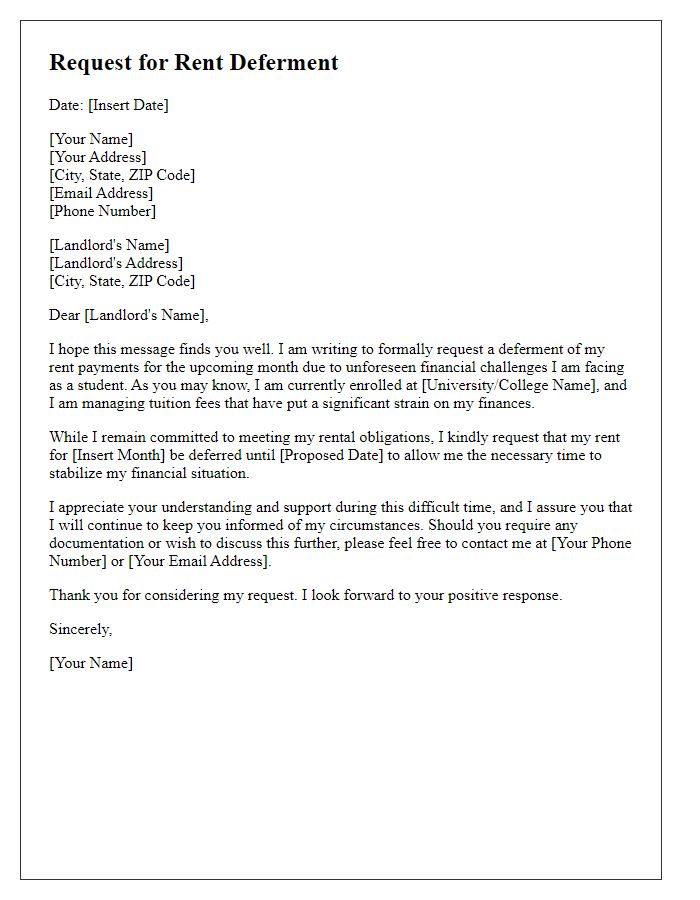

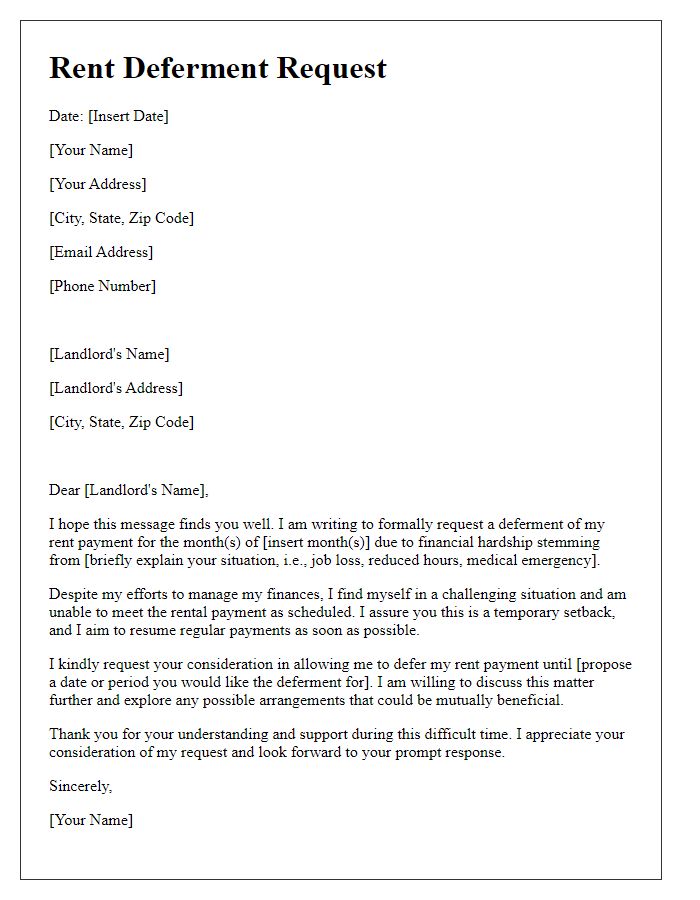
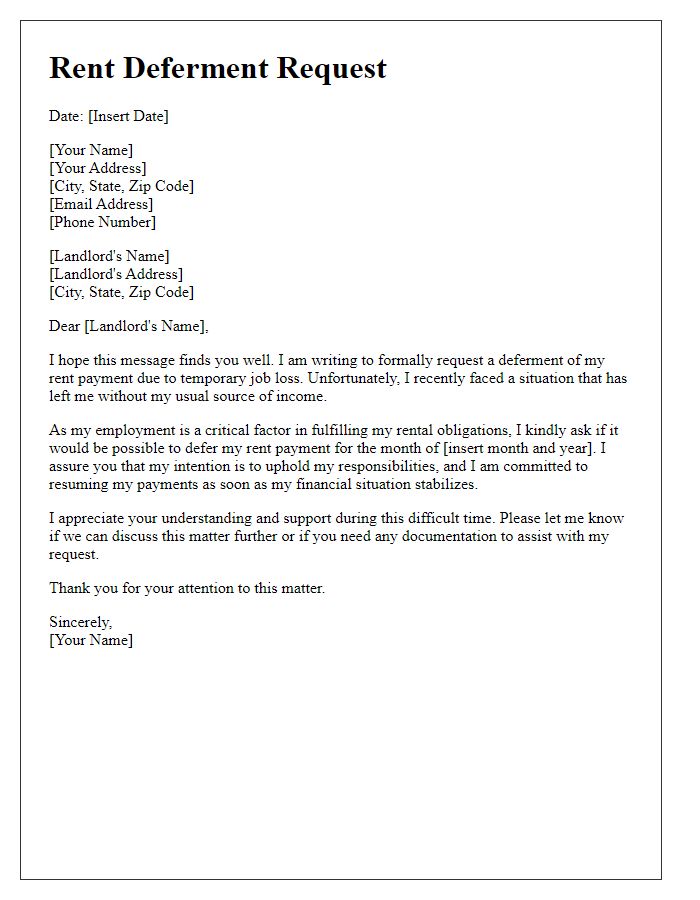
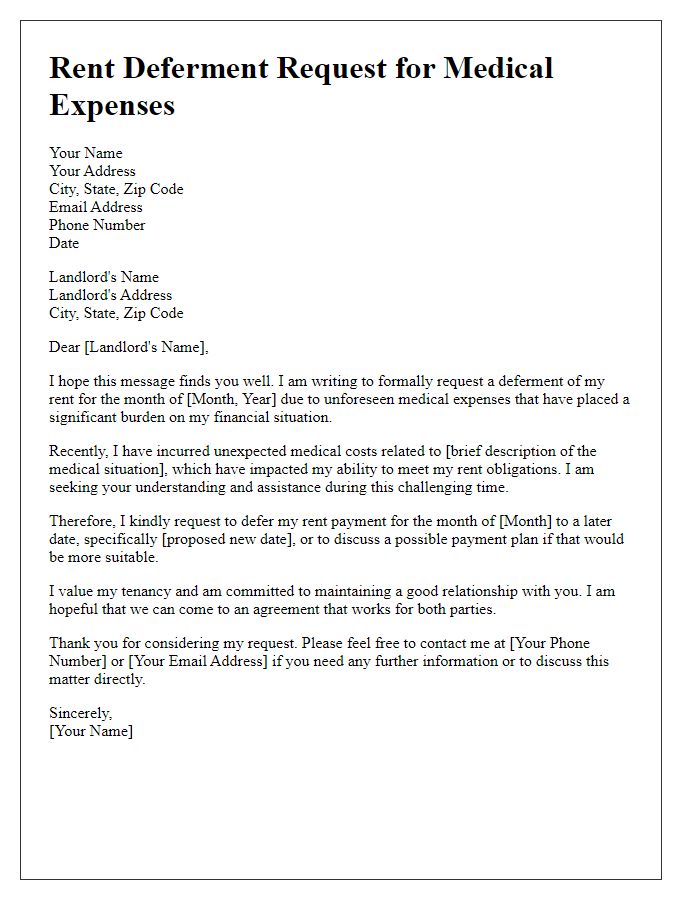
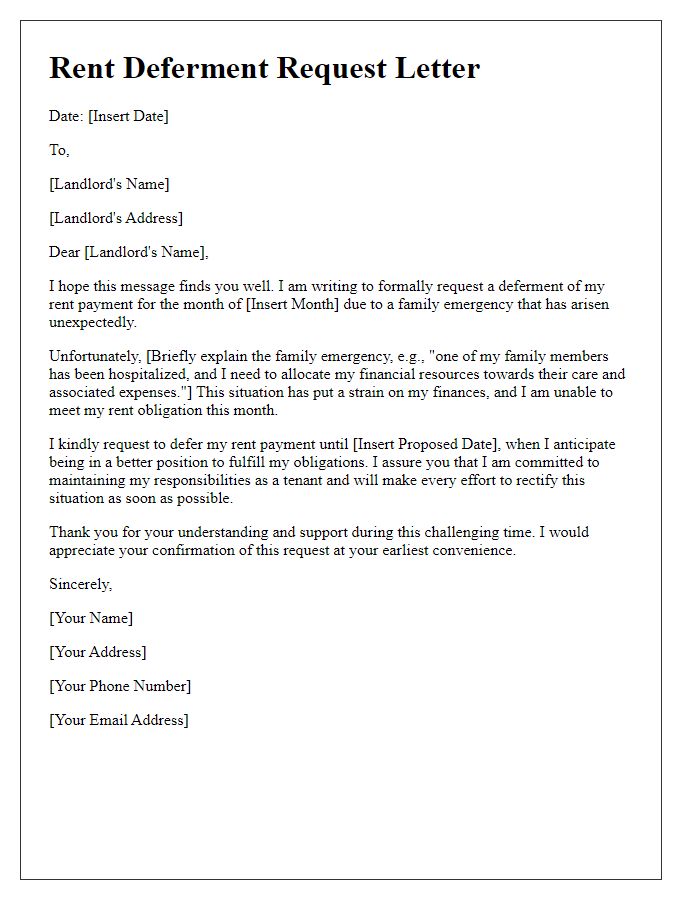
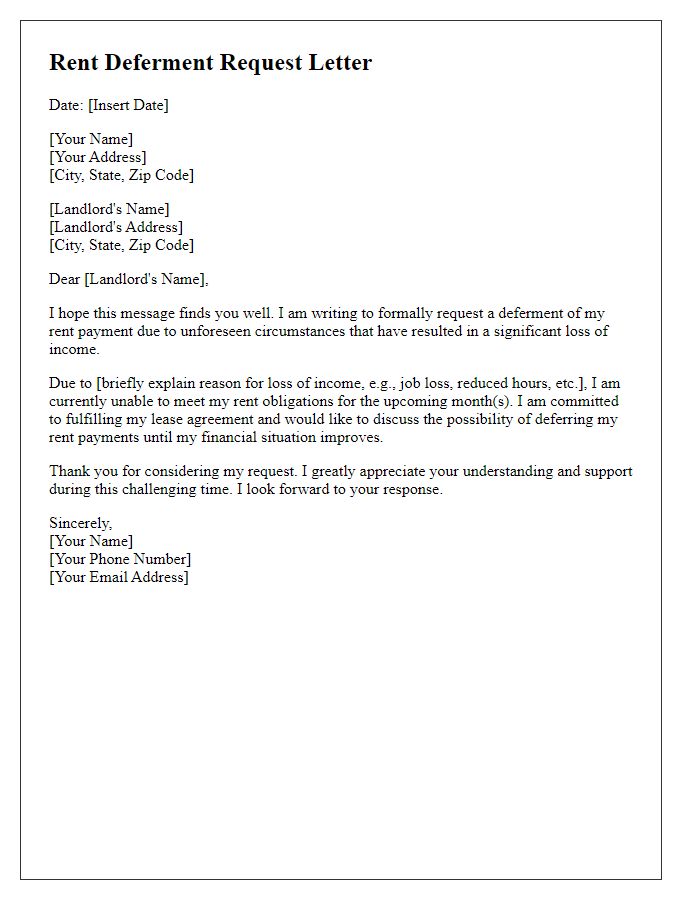
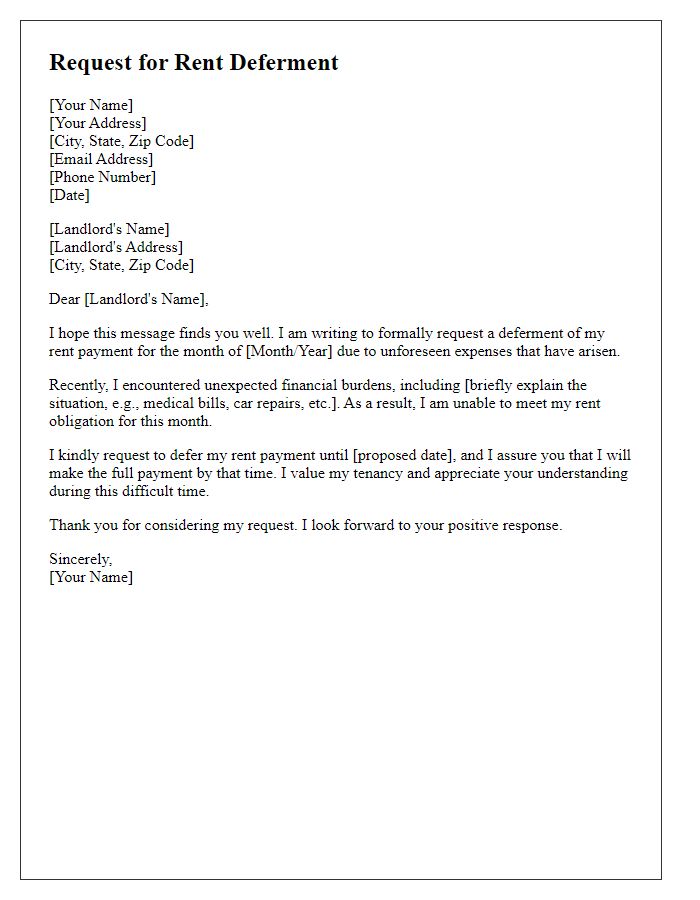
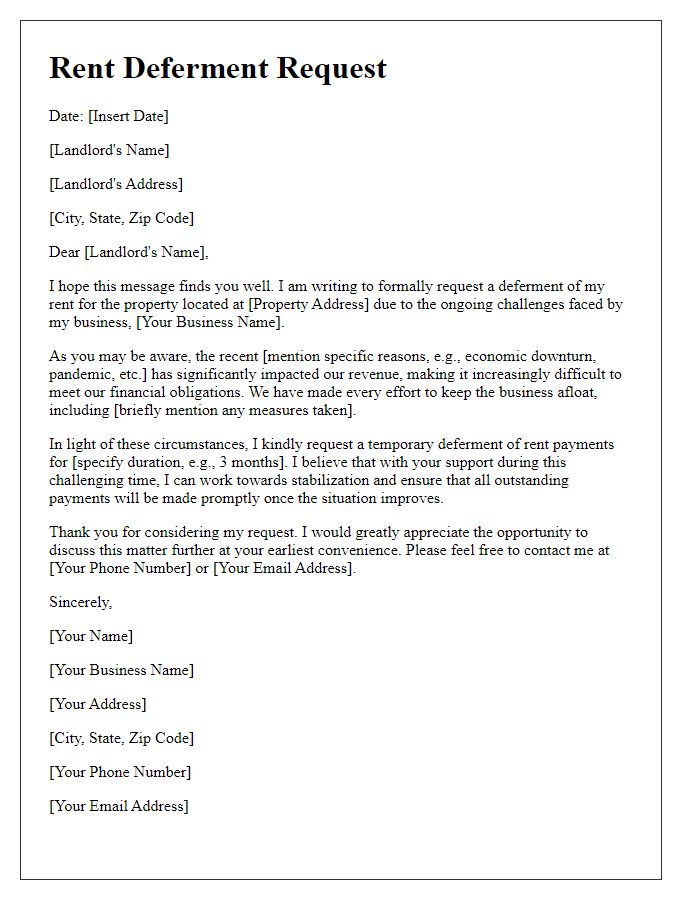
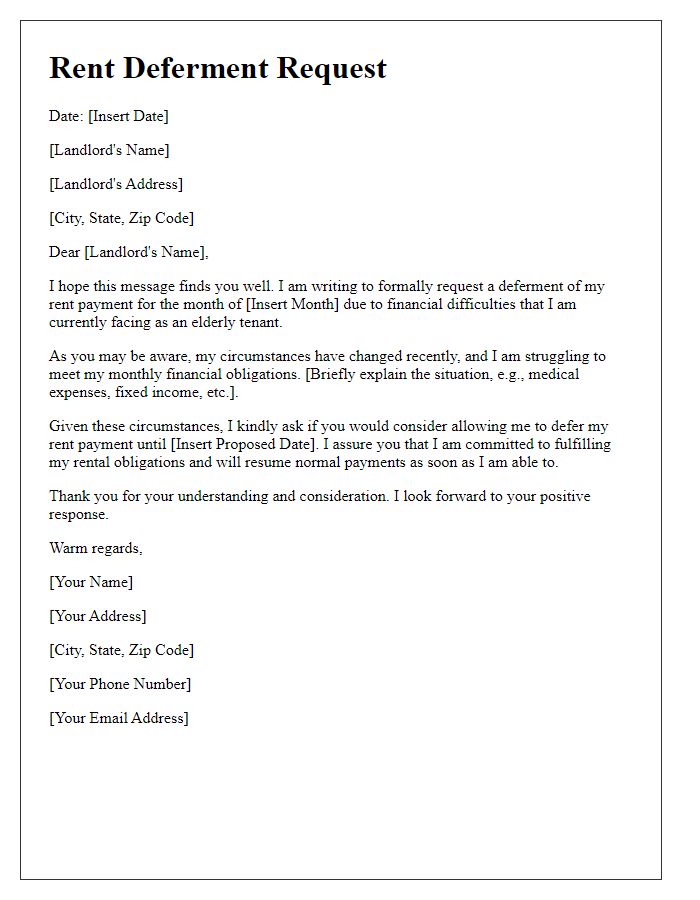


Comments